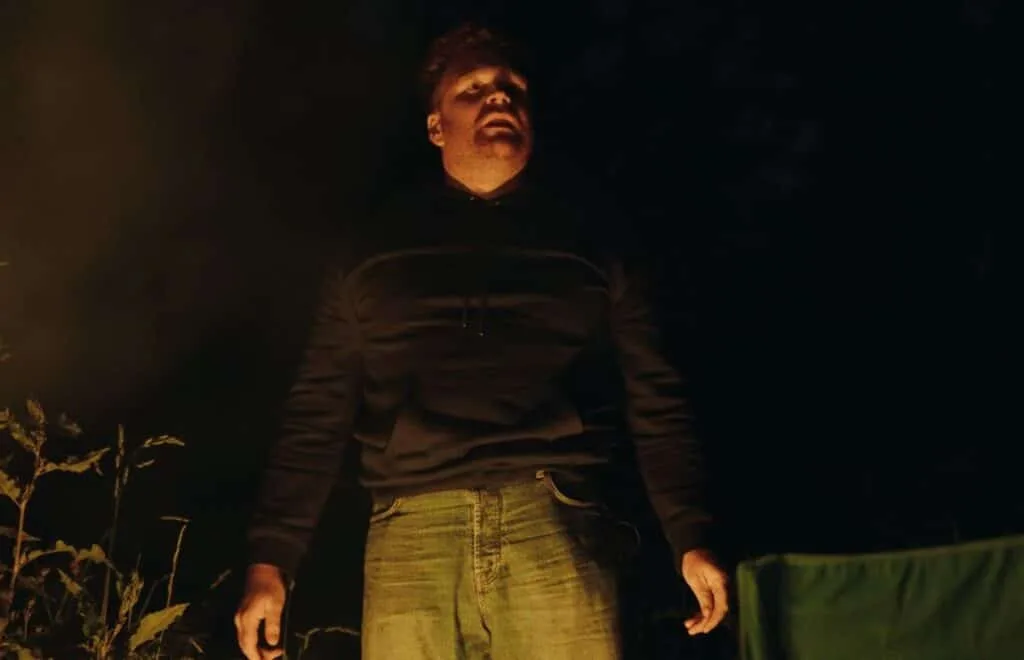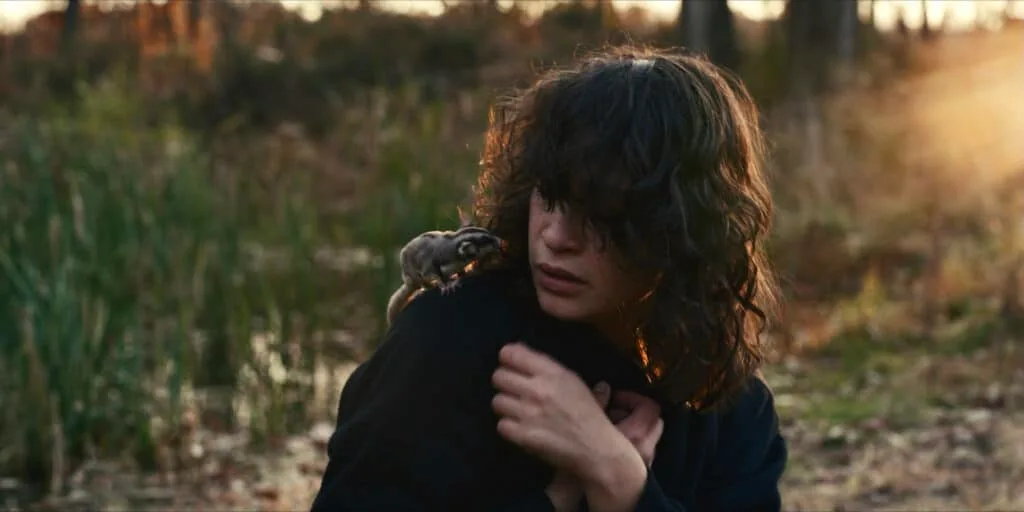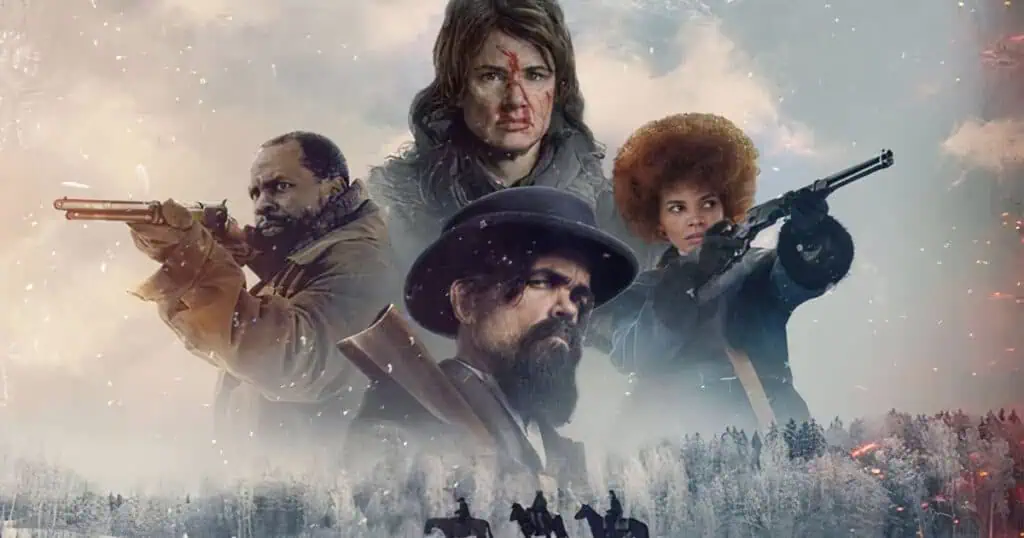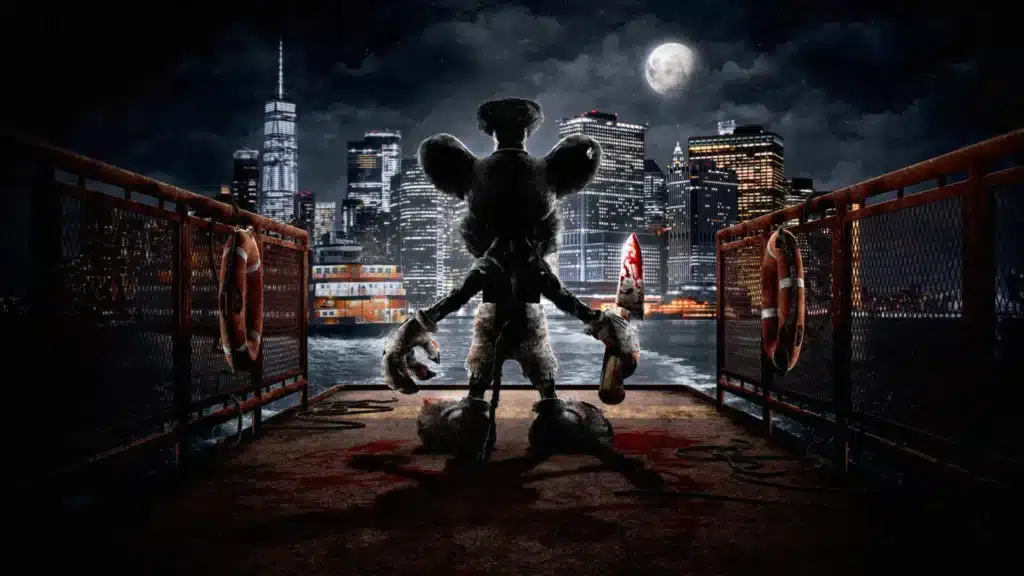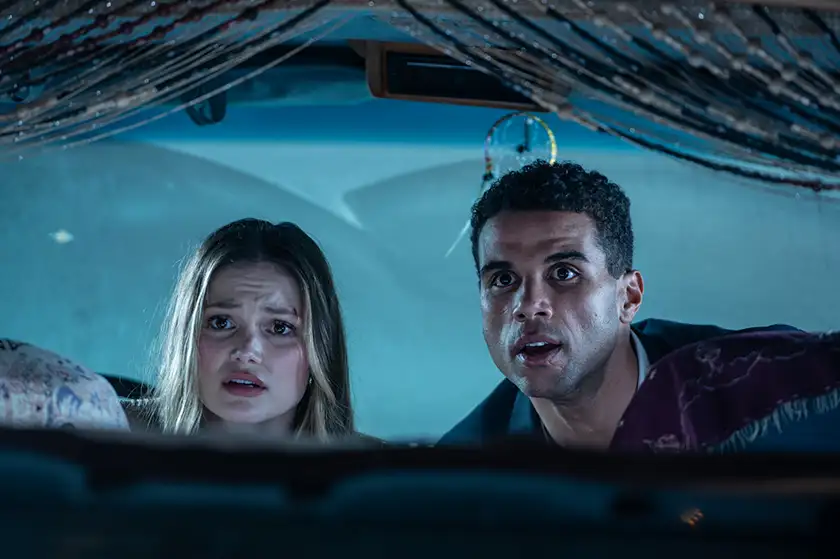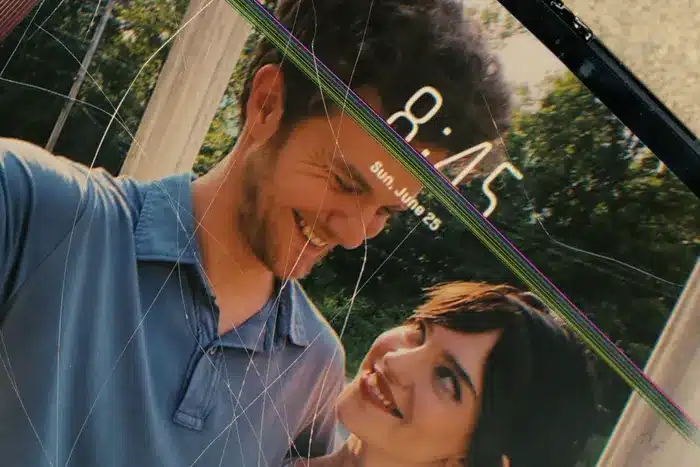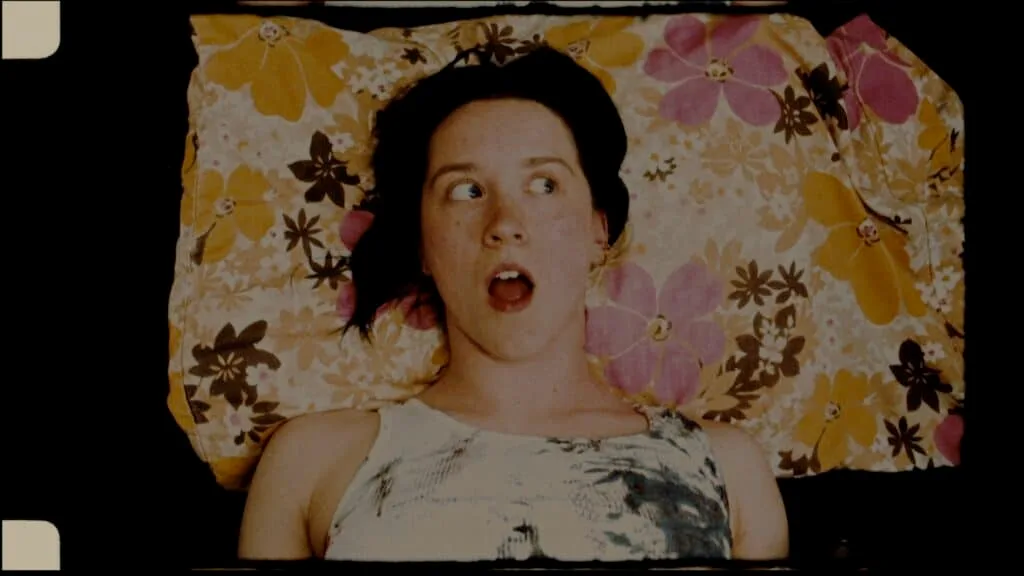
Mia (Caitlin Acken Taylor) is an art student who doesn’t think much of herself as an artist and, unfortunately, this viewpoint appears to extend to not only the others in her class but also her professor, who thinks her work is full of clichés and needs to push past her many creative blocks. Given a deadline of one week to produce “something with heart” or be kicked off the course, Mia looks for a source of inspiration and potentially finds one during a visit to local psychic and witchy type Syd (Mackenzie Lemire), who provides Mia with Lucid, a special candy which, in small doses, should open Mia’s mind and pave the way for her creative expression to flourish. Just one rule: Don’t overdo it. Which, of course, the headstrong Mia ignores almost immediately…
Described as “punk rock body horror” and a “coming of monster story,” Lucid has those things but if you’re expecting a Cronenbergian take, think again as the body horror and monster elements sit reasonably far back in the mix. It’s more of a commentary on art, music, individuality and confronting the demons of the past, all wrapped in writing/directing duo Deanna Milligan and Ramsey Fendall’s experimental style.
That could be my way of saying that you might find this too self-consciously DIY, with its jumps back and forth between 35mm and 16mm formats, intrusive bursts of noise, mixes of live action and animation and frequent trips to a club to sample various musical numbers – which I loved, by the way, but that’s one of the reasons this runs to a hundred and nine minutes and there could be moments along the way where you’re tempted to jump into the screen and tell Mia she really needs to be getting on with her project.
However, it’s this refusal to rush into any sort of decisive action and leave Mia drifting for much of the time that gives Lucid its singular approach. The loose narrative and various digressions also allow space for lead performer Caitlin Acken Taylor to cut loose with a mesmerising and occasionally ferocious central performance.
Splattered with paint and dressing to impress absolutely no one for a decent chunk of the tale, she portrays both the aesthetic and the frustration of the creative type with authenticity, eschewing the manic pixie, easel cradling, dream girl of something dreadful like She’s All That (thank you for giving me a reason to air how much I detest that) and being unafraid making Mia someone who’s not always easy to like. She treats those around her like crap. She lashes out constantly. She steals from the till at work. And yet, there’s always that wish for Mia to truly find herself, despite herself.
The supporting cast might be a little overstuffed, but there are a number of players who ensure their limited screen time counts, chiefly Lemire, whose Syd is sassy, worldly and advises Mia with an unconcealed streak of irritation that’s highly amusing. The Greek chorus of Mia’s classmates is arguably underused but Lucid is a film which, similar to Mia’s artistic journey, plumbs the depths in search of a number of disparate ideas which don’t always bubble to the surface as they should.
As a debut feature, there’s often a drive to include as many concepts as possible and Lucid often has so much going on that the main plot becomes mired. However, I’d rather a movie has so many thoughts it doesn’t always know what to do with them all and, although I previously mentioned that the monster work isn’t front and centre, the creature is brilliantly realised, steering away from the usual gloopy, drooling, toothy terror to intrigue and unnerve in a very different way.
As a piece of art, Lucid has a particular vision and it’s clear that it’s in no way pandering to the crowd. Visually it’s arresting and occasionally startling; narratively you may need it to get to the point more quickly than it does, but there’s no denying that Milligan and Fendall have made this in exactly the way they wanted. It might flirt with pretension, but this is staved off by the amusing digs at the art world. The musical numbers may feel like unnecessary detours but they enrich the world building and provide a haunting undercurrent to the final act. The symbolism may feel obvious, but then swings to arcane. If you don’t know art but you know what you like, this might drive you to distraction. Even so, it’s a fascinating experience. I’m not going to say you’ll love it – there’s a decent chance you won’t – but you’ll feel that behind it all, there’s a will to create something memorable.
Lucid (2025) received its world premiere at the Fantasia Film Festival on 22nd July.


